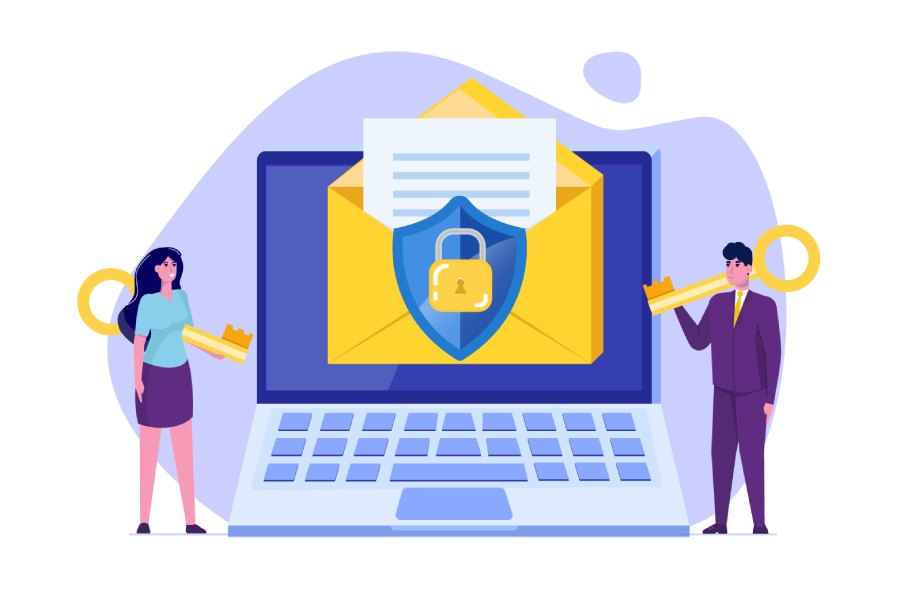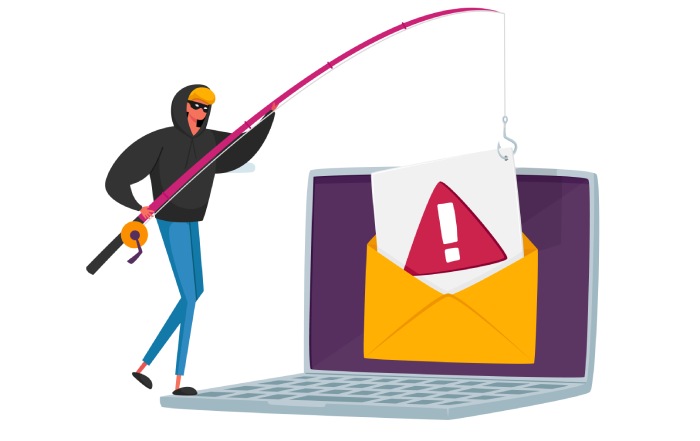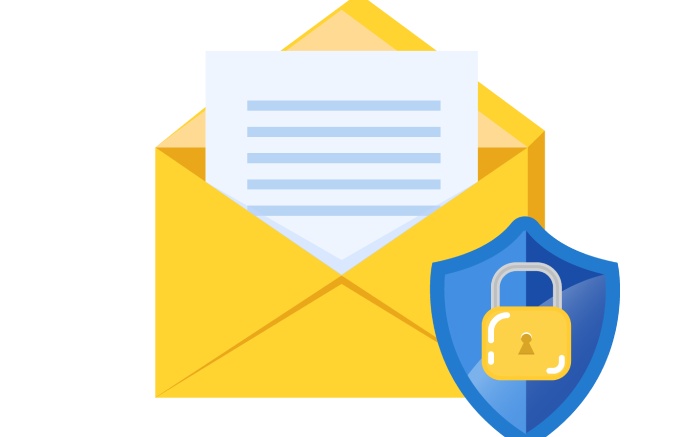Email is an indispensable means of communication in the business sector, as it enables people to share information in no time. People share all kinds of details in an email, including office documents, personal information, and sometimes, even financial information. Even though email is a boon to many as a communication tool, it comes with its own set of risks. Imagine what will happen if your banking credentials or critical office documents get into the hands of adversaries and malicious actors.
Nowadays, cybercriminals are finding new ways to trick people and get illegal access to their records and sensitive information. In this article, we’ll explore what inadequate email security could mean for the confidentiality, integrity, and availability of your business data and what you can do to keep malicious actors at bay.
Why Is Email Security Important For Business?
Businesses are spending vast amounts on email security as phishing, spoofing, and other attacks have increased during the past few years. Every other day, we see mentions of catastrophic cyberattacks or security breaches on the news. Besides general security issues like malware and spam, threats like email phishing and spoofing have become a significant headache for businesses worldwide. Below are some reasons why email security is vital for your business:
- In 2019, 65% of US organizations had experienced successful phishing attacks, which is also more than the global average of 55%.
- On average, around 53% of organizations have over 1000 sensitive files open to its employees. It means the malicious actors can access so many files if they can steal the employee credentials using a phishing email.
- Most organizations report that email security attacks caused significant impacts, such as:
- Data loss
- Financial loss
- Decreased productivity
- Disruption in business
- A massive hit to the organization’s reputation
- Ransomware is another huge concern, where malicious actors encrypt sensitive data in the organization’s information system and demand money for the decryption key.
Why Do Businesses Need To Upgrade Their Email Security?
It is essential not merely to have a basic set of email security measures but also an updated and highly secure and fail-proof system. Malicious actors come up with new strategies and tricks every day to bypass your defense system. Hence, organizations need to go for the latest and advanced email defense system to protect their business emails from such prying eyes.
Security experts report that malicious actors treat emails as the main entry point to get into your system. But a highly secure and multi-layered security system can quickly detect phishing attacks. It is highly essential to go for email security services that are more predictive than reactive. The latest email security tools and filters can predict the ensuing security attacks and prevent a severe breach. AI, ML, and comprehensive threat intelligence are the latest tools resorted to by security experts in thwarting malicious intrusions.
What Are The Measures Needed To Be Taken To Protect Your Business From Malicious Actors?
Businesses need to observe email security best practices to protect their business from fraudulent emails and other threats from malicious actors. The following are the essential steps to be taken to check malicious attacks
Stay Updated On The Latest Email Security Attacks
Malicious actors come up with new techniques and attack strategies every day. Hence, if you don’t keep yourself well-informed about the latest methods, you could be the next prey. Organizations need to ensure that every employee is informed about the latest phishing scams to keep away from them.
Email Security Awareness Training
Businesses need to conduct regular security awareness training workshops to ensure every employee in the organization knows basic email security practices. Email phishing prevention training and simulated phishing attacks need to be done periodically to ensure that vital data is safe and secure at all times.
All it takes for a phishing scam to be successful is a single click of a malicious URL. Hence, employees need to treat every email as a phishing email and keep their eyes peeled when clicking on links in emails. While it may be acceptable to click the links from an email from trusted sources, they must watch out for fabricated email addresses that resemble the trusted ones. Also, they have to be cautious of links from unknown sources or new contacts.
Endpoint Protection
While endpoint protection cannot guarantee 100% protection from email security attacks, it is considered one of the best email security practices to be followed. IT teams need to continually monitor their software to ensure that it is the latest and up to date at all times. Every software and application in the system, including the OS, needs to be updated to their latest versions. Running old versions of software and applications can provide an easy entry point to malicious actors.
Two-factor Authentication
Two-factor authentication ensures a second layer of security from cyberattacks. It makes it a lot harder for malicious actors to gain access to your sensitive information. Hence, organizations need to enforce two-factor authentication systems for enhanced email security.
Password Manager
Another easy way to prevent email security threats is by making use of a password manager. Malicious actors trick people into entering their usernames and passwords on fraudulent websites. With a password manager in place, you don’t need to enter the password again. The details will only get filled in automatically if the URL is correct.
Malicious actors come up with new strategies every day to gain access to your sensitive data. Hence, businesses need to implement the latest email security services to keep such threats at bay. Remember, there is no all-in-one solution for email security. Therefore, organizations need to use various advanced tools and strategies and keep them updated at all times to protect valuable data.


